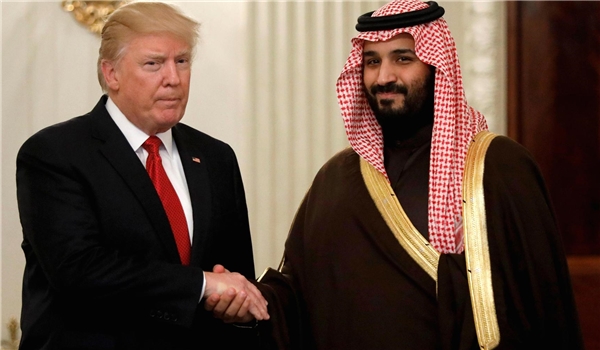
RNA - Mujtahid, a well-known source and whistleblower in the Saudi royal family, disclosed the cooperation on his twitter page on Saturday.
"The US embassy refrains from issuing visa for the Saudi businesspersons and figures who believe to be in the danger of detention," he wrote.
The US embassy, unlike the Canadian and some European embassies, turns their requests down, Mujtahid wrote.
The Saudi anti-corruption push involving the arrest of princes and government ministers may lead to the confiscation of cash and other assets worth of at least $800 billion.
“They reckon they could get around two to three trillion riyals from these people. That’s the number they are talking about,”a person close to the government told the Wall Street Journal earlier this month.
Early in November, Saudi state media reported the arrest of at least 11 Saudi princes and four incumbent ministers, with the minister of the National Guard, and the economy minister among those detained. The arrests are reportedly the part of a broader plan to fight corruption in the kingdom.
Some leading businessmen have been arrested since the crackdown started, with more than 60 princes, officials and other big-name Saudis in custody, according to the sources cited by the WSJ.
The kingdom's central bank has reportedly frozen the accounts of “persons of interest” and announced that the step was “in response to the Attorney General’s request pending the legal cases against them.”
According to the media, most of the frozen assets are abroad, which will make the process of reclaiming and confiscating longer and more complicated. All the funds accumulated through corruption are to become state property.
The anti-corruption crackdown is led by a newly established committee chaired by Crown Prince Mohammad bin Salman. The agency was created by royal decree of King Salman bin Abdulaziz Al Saud, and published by Saudi Arabia’s official news agency.
The committee is exempt from “laws, regulations, instructions, orders, and decision” while performing its wide range of duties, namely “identifying offenses, crimes, persons and entities” complicit in corruption, and gives it the power to impose punitive measures on those caught red-handed. Those include asset freezes, travel bans and arrests.
847/940